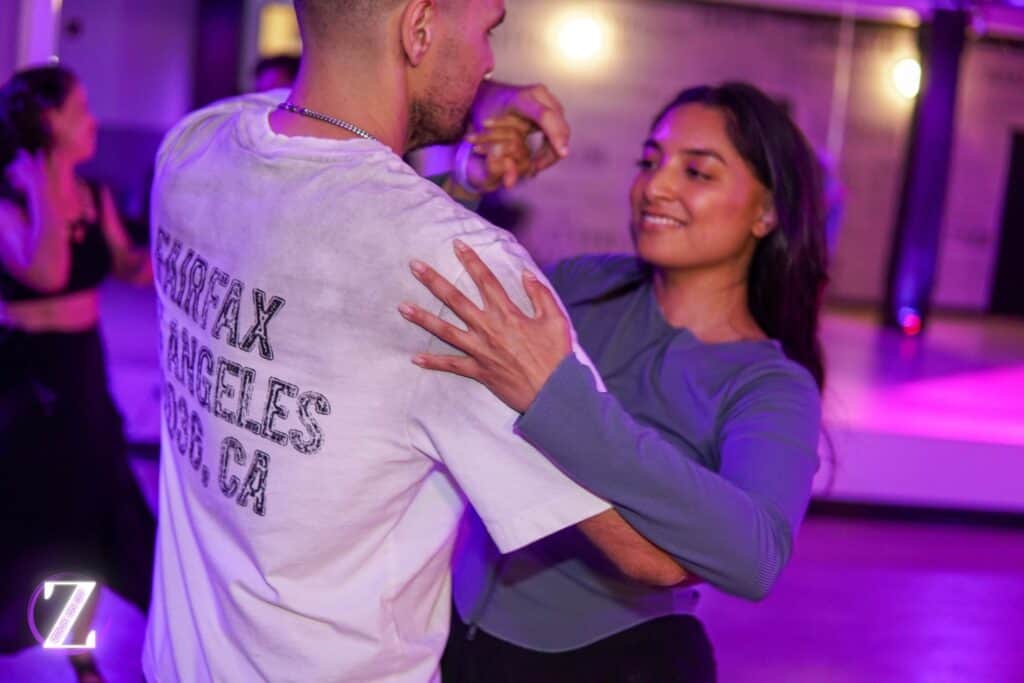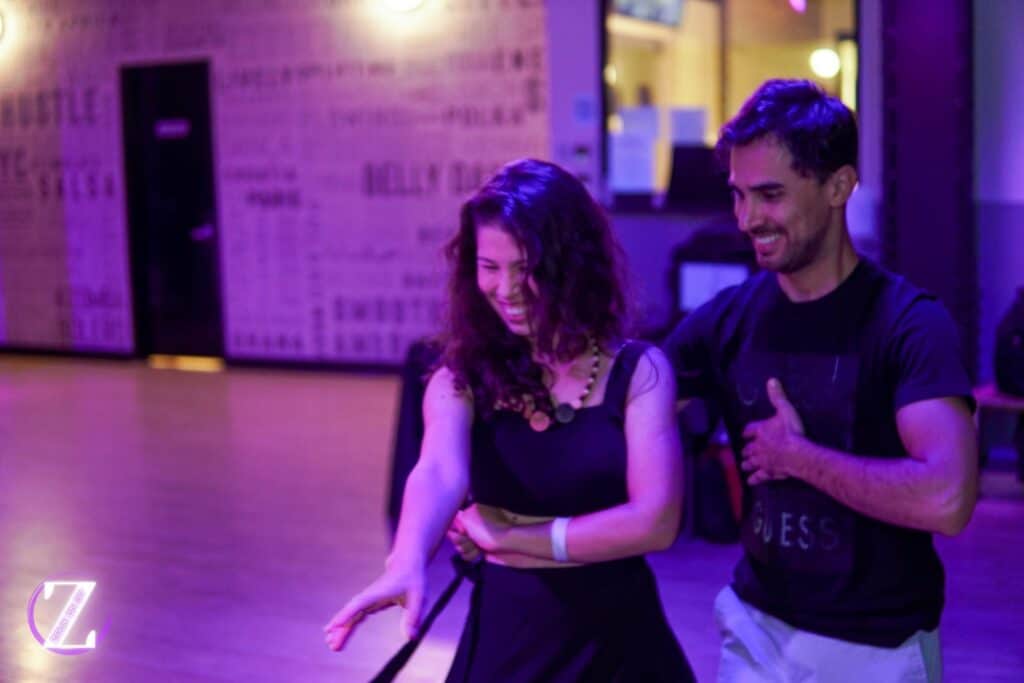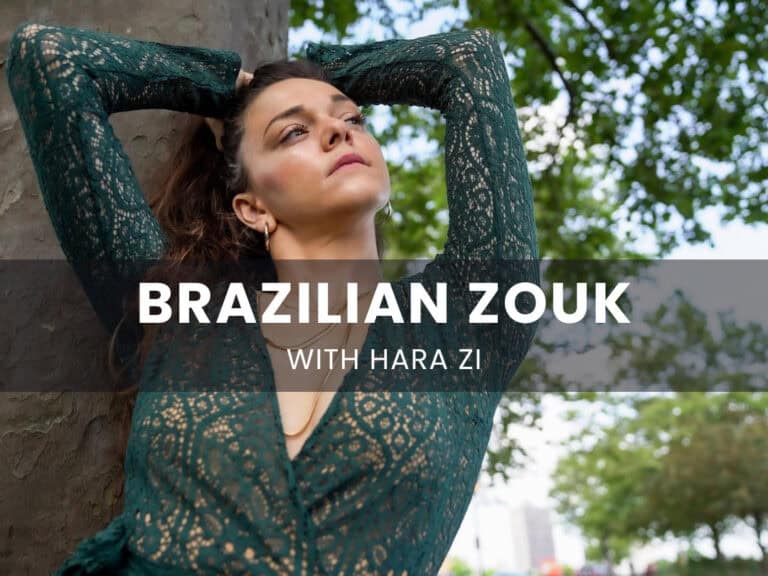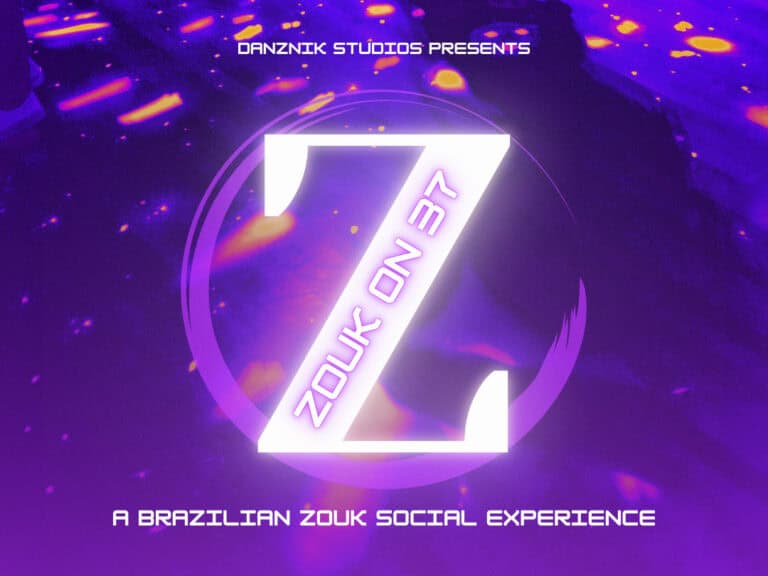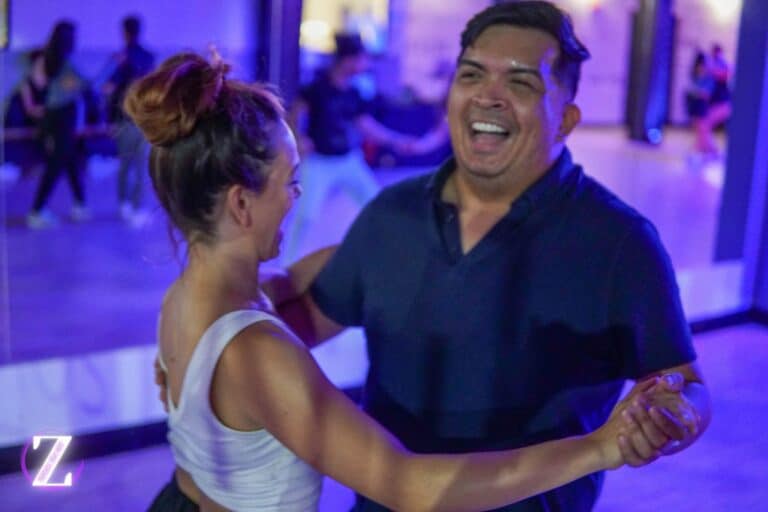Brazilian Zouk is a partner social dance developed first in Brazil and that slowly has been taking over the world. Among its distinctive characteristics, you will see a mix of playful footwork, body movements, and Brazilian Zouk’s unique head movements for followers. Today, almost every major city around the globe has a Brazilian Zouk scene of passionate dancers ready to embrace everyone that wants to join.
Brazilian Zouk can be danced to a very wide range of music styles from lyrical songs without a beat, to high-energy music with strong beats.
